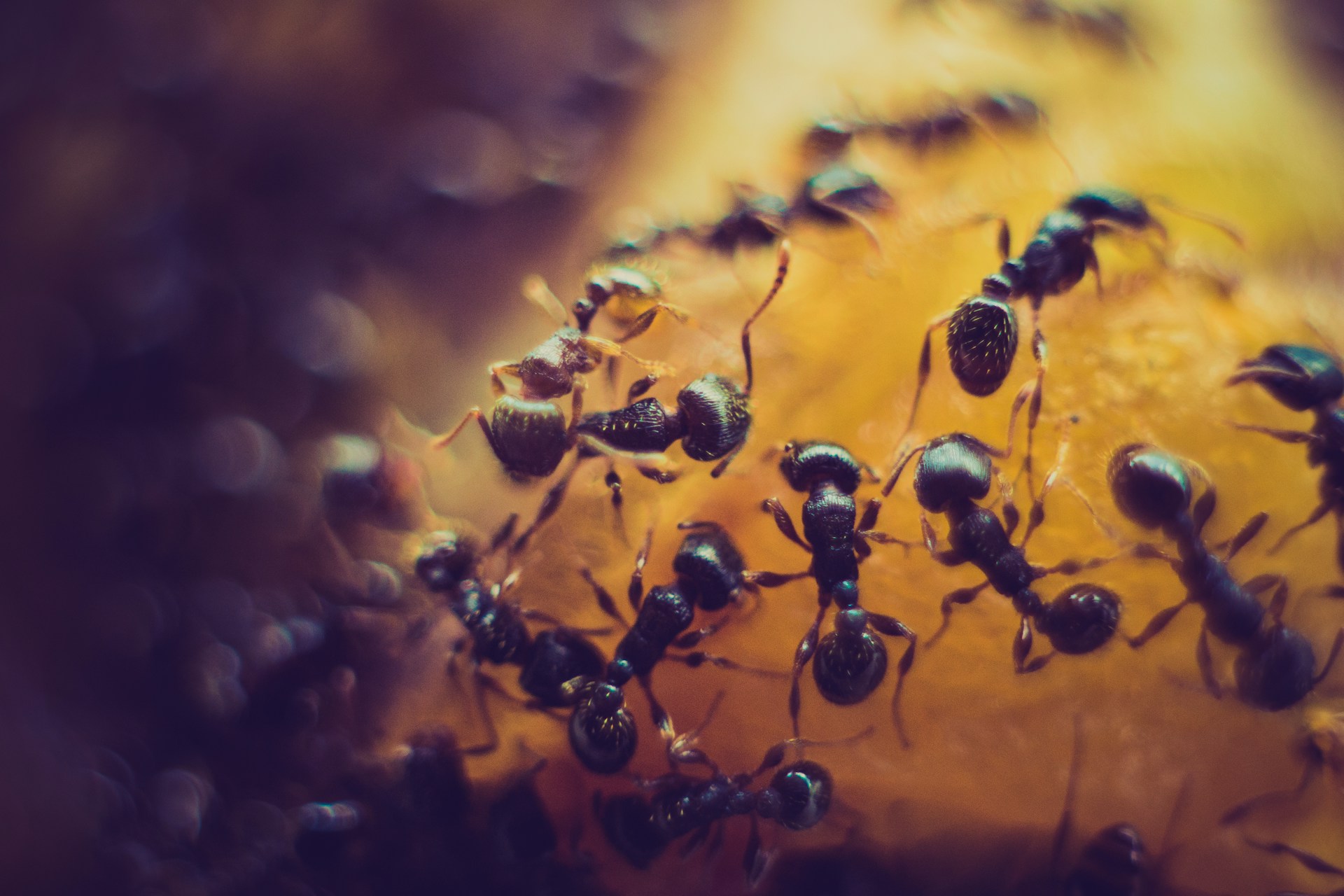Contents
- 1 Ants: A Common Household Pest
- 2 Identifying Different Types of Ants
- 3 Understanding the Behavior of Ants
- 4 Preventing Ant Infestations in Your Home
- 5 Maintaining a Clean and Sanitary Environment
- 6 Natural Remedies for Ant Control
- 7 Using Chemical-Based Ant Baits and Sprays
- 8 Sealing Entry Points to Prevent Ants from Entering
- 9 Calling Professional Pest Control Services
- 10 Long-Term Strategies for Ant Prevention
Ants: A Common Household Pest
Ants are tiny insects that are frequently found in households. They are one of the most common household pests, often infiltrating homes in search of food and water sources. These small creatures can be found in various areas of the house, such as the kitchen, pantry, and even in cracks and crevices in the walls. Their ability to reproduce quickly makes them a nuisance as their numbers can quickly multiply, resulting in an infestation. Dealing with an ant infestation requires prompt action to prevent further complications.
The presence of ants in the house can be bothersome and unsightly. They can contaminate food and leave behind trails of pheromones, attracting more ants to the area. Additionally, some ants, such as carpenter ants, can cause structural damage to the house by excavating wood for nesting. It is essential to address ant infestations promptly to minimize their impact on your home and maintain a clean and sanitary living environment.
Identifying Different Types of Ants
When it comes to identifying different types of ants, it is essential to understand that there are numerous species that can invade your home. One of the most common types is the pavement ant, known for its preference to establish colonies in cracks and crevices on sidewalks and driveways. These ants are typically dark brown or black in color and measure around 1/8 inch in length. Another common household pest is the Argentine ant, which is light to dark brown in color and grows up to 1/4 inch long. These ants are known for their vast interconnected colonies and their tendency to invade kitchens and pantries in search of food.
Fire ants are another type of ant that can infest your home and can deliver a painful sting if disturbed. These ants are reddish-brown or black and range in size from 1/8 to 1/4 inch. Carpenter ants, on the other hand, are significantly larger, measuring up to 1/2 inch in length. They are typically black, but some species may have a reddish hue. These ants are notorious for nesting in wooden structures, such as walls and decaying wood, and can cause significant structural damage if left unchecked. By being able to identify the different types of ants, you will have a better understanding of their behavior and the appropriate methods to control them effectively.
Understanding the Behavior of Ants
Ants are fascinating insects that exhibit complex social behavior. They live in organized colonies, with each member having a specific role and responsibility. One ant in the colony is designated as the queen, and her sole purpose is to lay eggs and ensure the survival of the colony. Other ants take on different roles, such as foraging for food, caring for the young, or defending the colony against intruders.
The behavior of ants is largely governed by chemical signals known as pheromones. These chemicals are released by ants to communicate with one another and mark trails to food sources or potential nesting sites. By following these scent trails, ants can locate food efficiently and communicate important information to their fellow colony members. Understanding the behavior of ants and their reliance on pheromones can help homeowners devise effective strategies to control and prevent ant infestations in their homes.
Preventing Ant Infestations in Your Home
Ant infestations can be a nuisance and a potential health hazard in your home. To prevent these unwanted guests from invading your living space, there are several steps you can take. First and foremost, it is crucial to keep your home clean and free of food debris. Ants are attracted to crumbs and spills, so regularly sweeping, mopping, and wiping down surfaces can go a long way in deterring them from entering your home. Additionally, ensuring that all food items are properly stored in sealed containers will further discourage ants from finding a food source in your kitchen or pantry.
Another effective method for preventing ant infestations is to eliminate their potential entry points into your home. This involves sealing cracks, gaps, and holes in your walls, floors, and foundation. Even the tiniest openings can serve as an invitation for ants to come inside, so it is essential to carefully inspect your property for any potential access points. Using caulk or weatherstripping can help create a barrier and significantly reduce the likelihood of ants finding their way into your living spaces. By taking these simple preventive measures, you can minimize the risk of ant infestations and ensure a clean and ant-free home.
Maintaining a Clean and Sanitary Environment
To prevent ant infestations in your home, it is crucial to maintain a clean and sanitary environment. Ants are attracted to food sources and any lingering crumbs or spills can quickly become an invitation for these bothersome pests. Therefore, it is essential to regularly clean your kitchen and dining areas, ensuring that countertops, floors, and tables are free from food debris.
Additionally, take care to properly store any open food items in tightly sealed containers. Ants have a keen sense of smell and can easily detect even the smallest amounts of food. By storing food properly, you can minimize the likelihood of ants being drawn to your kitchen. Furthermore, regularly emptying and cleaning trash cans will also help to reduce attractants for ants. It is important to remember that even the smallest amount of leftover food can be enticing to these relentless insects, so maintaining a clean and sanitary environment is key to preventing ant infestations.
Natural Remedies for Ant Control
Some people may prefer natural remedies when it comes to controlling ant infestations in their homes. One option is to use vinegar, as ants dislike the strong smell. Simply mix equal parts of vinegar and water in a spray bottle and apply it to areas where ants are commonly seen. Another natural remedy is to sprinkle cinnamon along ant trails or near entry points, as ants are repelled by its scent. Additionally, placing cucumber peels or slices near areas where ants are present can be effective, as ants have an aversion to cucumber.
While natural remedies can be a convenient and safe option for ant control, it is important to note that they may not be as effective as chemical-based methods. It is also essential to identify and address the root cause of the ant infestation, such as food sources or entry points. In some cases, seeking professional pest control services may be necessary to completely eliminate the ant problem and prevent future infestations.
Using Chemical-Based Ant Baits and Sprays
Chemical-based ant baits and sprays can be an effective solution for controlling ant infestations in your home. These products are designed to attract ants, allowing them to take the bait back to the colony and eliminate the entire population. Ant baits usually contain a slow-acting poison that allows the ants to carry it to the mound before it takes effect, ensuring the poison spreads throughout the colony. Sprays, on the other hand, provide a more immediate solution by directly targeting ants that are visible in your home.
It’s important to note that when using chemical-based ant baits and sprays, it’s crucial to follow the instructions provided by the manufacturer. These products often contain toxic chemicals that may be harmful to humans and pets if misused. Therefore, it’s essential to wear protective clothing, such as gloves, goggles, and a mask, when applying these products. Additionally, make sure to keep children and pets away from the treated areas until the chemicals have dried or dissipated. When used correctly and responsibly, chemical-based ant baits and sprays can provide effective control against ant infestations in your home.
Sealing Entry Points to Prevent Ants from Entering
Sealing entry points is a crucial step in preventing ants from invading your home. These tiny creatures are masters at finding even the tiniest gaps and cracks to gain entry. By sealing these entry points, you can effectively create a barrier that keeps ants at bay.
Start by inspecting the exterior of your home for any openings or cracks. Check around windows, doors, pipes, and utility lines. Use a silicone-based caulk or weatherstripping to seal these gaps. Additionally, pay attention to areas where wires or cables enter your home and fill any gaps with caulk or insulation foam. By taking these preventive measures, you can significantly reduce the chances of ants finding their way into your living space.
Calling Professional Pest Control Services
Sometimes, despite our best efforts, ants can prove to be a persistent problem in our homes. When all other methods of ant control have failed, it may be time to consider calling in professional pest control services. These professionals have the experience, knowledge, and resources to effectively eliminate ant infestations and provide long-lasting solutions.
Professional pest control services employ trained technicians who are well-versed in the behavior and habits of different ant species. They understand the importance of identifying the root cause of the infestations and take a strategic approach to tackle the problem. By using targeted treatments and environmentally-friendly methods, these experts ensure the safety of your family and pets while effectively eliminating ants from your home. In addition, they can provide valuable advice on preventing future infestations and offer long-term strategies to keep your home ant-free.
Long-Term Strategies for Ant Prevention
Long-term strategies for ant prevention are essential to ensure that your home remains free from these pesky pests. One effective approach is to eliminate any potential food sources that may attract ants. Be sure to store food in sealed containers and clean up any spills or crumbs immediately. Additionally, regularly empty and clean trash cans to prevent ants from being lured by the scent of leftovers.
Maintaining a clean and sanitary environment is another crucial aspect of long-term ant prevention. Regularly sweep or vacuum floors to remove any food particles that may have fallen. Wipe down countertops, tables, and other surfaces with a mixture of water and vinegar, as this can help to repel ants. In outdoor areas, make sure to keep garbage cans tightly sealed and avoid leaving pet food outside for extended periods. By consistently practicing good hygiene and cleanliness habits, you can significantly reduce the chances of attracting ants into your home.

